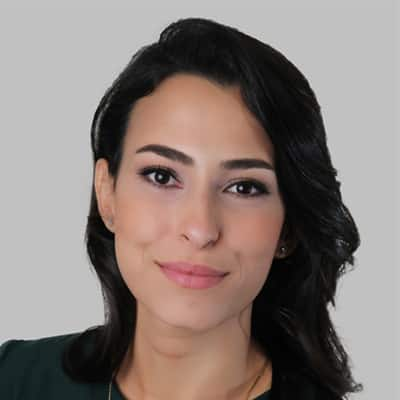Customer Logins
Obtain the data you need to make the most informed decisions by accessing our extensive portfolio of information, analytics, and expertise. Sign in to the product or service center of your choice.
Customer Logins
BLOG
Jan 07, 2022
Sudanese Prime Minister resigns
On 2 January, in a televised speech, Sudanese Prime Minister Abdalla Hamdok announced his resignation. This comes six weeks after being reinstated and a month after house arrest following a military coup on 25 October 2021. Hamdok said that he was resigning because of his inability to secure an agreement with the military coup leaders to form a government ahead of elections (postponed from 2023 to 2025).
Since October 2021, large-scale protests involving millions of people across Sudan have been held against the coup and, more recently, against a November agreement made by Hamdok with the military. According to the Sudanese Doctors' Union, at least 57 protesters have been killed and hundreds injured by security forces since October 2021.
Hamdok's resignation leaves the military in de facto control of the country by force but lacking in legitimacy.
Since Hamdok's resignation, coup leader General Abdel Fatah al-Burhan has formed a committee to lead discussions with political figures to appoint a new prime minister and form a transitional technocratic government. Hamdok's resignation reduces the already low likelihood of the military finding any civilians willing to take part in a military-led government. This was already indicated by the failure to appoint a new prime minister after Hamdok was deposed in October 2021 and further confirmed by Hamdok's failure since November to find civilians willing to join a military-led government. Regardless of any new potential civilian candidates, protesters are likely to reject any type of military engagement in politics, as indicated by the protest slogan, 'No Partnership, No Negotiation'.
With very little chance of agreement on a civilian component in a military-led government, mass protests are likely to be protracted in the coming months, increasing the likelihood of security forces further escalating their use of force, leading to increased business disruption. Although Hamdok's popularity began to decrease since he signed the November deal, he was nonetheless likely to be the last remaining civilian figure capable of pressuring the military into negotiations, not least because of the international backing he enjoyed.
Pro-democracy groups, consisting of mainly 'resistance committees', as well as the Sudanese Professionals Association, the civilian opposition coalition, and the FFC, have jointly called for a series of six rallies in January (on 4, 6, 12, 17, 24, and 30). The coup leaders will be faced with the decision whether to make limited concessions and exercise restraint against protesters or, more likely, to maintain their hard line and step up their violent response towards the protesters, leading to at least dozens dead daily. Security forces, including the military, the Rapid Support Forces (RSF), the police, and the intelligence service, have sought to deny resistance committees the ability to mobilize mass protests by temporarily closing access to eight out of the 10 bridges that link Khartoum to the twin cities of Omdurman and Bahri (usually on the day before rallies) using goods containers and military vehicles, as well as by disrupting internet and call communications from around 10 am to 8 pm on protests days.
While mass protests are likely to be met with overwhelming force, civil war risk is unlikely to increase as long as the military retains its loyalty to the coup leaders and non-state armed groups do not take up arms against the coup leadership.
Hamdok's resignation is likely to reduce the military's prospects of securing international backing, critical to restoring Sudan's economy and increasing the likelihood of targeted sanctions.
Hamdok's resignation and the military's likely failure to find a suitable civilian alternative considerably reduce prospects for international support, notably in terms of finance, from key countries such as the United States. Hamdok's long-standing experience as an economist in international organizations had placed him as a preferred international interlocutor. He played a central role in negotiating the US removal of Sudan as a State Sponsors of Terrorism (SST), enabling Sudan to obtain concessional financing and debt relief from international donors, such as the International Monetary Fund (IMF), to restructure Sudan's crippling debt and to approach other countries to obtain financial assistance. IHS Markit maintains its assessment that the military is unlikely to be significantly affected by international sanctions given its access to Sudan's main sectors and productive businesses.
Indicators of changing risk environment
Increasing risk
- The military is unable to find a suitable civilian candidate and therefore decides to appoint members of the National Congress Party (NCP), which is former president Bashir's party, likely resulting in protracted unrest given the military's and protesters' opposition to such appointments.
- Some senior army officers oppose the leaders of the military coup and back Burhan as an alternative, indicating increased risks of a counter-coup in support of a civilian-led government.
- The most influential and militarily capable non-state armed groups, which signed the Juba Peace Agreement, turn against the military coup leaders, increasing civil war risks and property damage risks across Sudan.
Decreasing risk
- Burhan resigns from his position, encouraged by foreign countries such as the US and the Gulf, providing him with a safe haven and assurance of immunity from prosecution.
- Widespread use of lethal force by RSF fighters against protesters increases the likelihood of factions of the SAF aligning themselves with the protesters and organizing a counter-coup against Burhan.
- Important foreign countries continue to withhold financial assistance to Sudan, indicating increased isolation of the military, aimed at putting the coup leadership under pressure to engage pro-democracy groups in dialogue.
{"items" : [
{"name":"share","enabled":true,"desc":"<strong>Share</strong>","mobdesc":"Share","options":[ {"name":"facebook","url":"https://www.facebook.com/sharer.php?u=http%3a%2f%2fssl.ihsmarkit.com%2fmarketintelligence%2fen%2fmi%2fresearch-analysis%2fsudanese-prime-minister-resigns.html","enabled":true},{"name":"twitter","url":"https://twitter.com/intent/tweet?url=http%3a%2f%2fssl.ihsmarkit.com%2fmarketintelligence%2fen%2fmi%2fresearch-analysis%2fsudanese-prime-minister-resigns.html&text=Sudanese+Prime+Minister+resigns+%7c+S%26P+Global+","enabled":true},{"name":"linkedin","url":"https://www.linkedin.com/sharing/share-offsite/?url=http%3a%2f%2fssl.ihsmarkit.com%2fmarketintelligence%2fen%2fmi%2fresearch-analysis%2fsudanese-prime-minister-resigns.html","enabled":true},{"name":"email","url":"?subject=Sudanese Prime Minister resigns | S&P Global &body=http%3a%2f%2fssl.ihsmarkit.com%2fmarketintelligence%2fen%2fmi%2fresearch-analysis%2fsudanese-prime-minister-resigns.html","enabled":true},{"name":"whatsapp","url":"https://api.whatsapp.com/send?text=Sudanese+Prime+Minister+resigns+%7c+S%26P+Global+ http%3a%2f%2fssl.ihsmarkit.com%2fmarketintelligence%2fen%2fmi%2fresearch-analysis%2fsudanese-prime-minister-resigns.html","enabled":true}]}, {"name":"rtt","enabled":true,"mobdesc":"Top"}
]}




